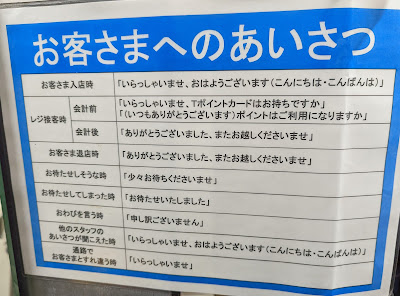The essential part of Japanese: Causative and Passive Verbs
Causative Verbs:
A causative verb expresses a cause, for example, blacken, which means 'to cause to become black.'
In Japanese, such verbs are used very frequently. If you can't use it, you can hardly speak, which I realized after I came to Japan.
If you want to ask for rest time, you can say this:
休ませていただけませんか。Would you mind me taking a rest? (Let me rest.)
休む←Click this. You can see all the variations of this word.
And I highly recommend this website to query verb deformation, which is very helpful:
https://www.gavo.t.u-tokyo.ac.jp/ojad/eng/search/index
Causative verbs often use two Japanese particles, "に" and "を."
In Japanese, 助動詞 (jodōshi, “auxiliary verbs”) can refer to either inflecting suffixes or auxiliary verbs (verb suffixes that are verbs on their own). Japanese school grammar uses the term in the first sense, and uses 補助動詞 (hojodōshi, “supplementary verbs”) for what are called auxiliary verbs in Western grammar.
from: https://en.wiktionary.org/wiki/Appendix:Japanese_auxiliary_verbs
For example:
- 娘にギーターを習わせます。Make/Let daughter learn guitar.
- 息子をアメリカへ留学させます。Make/Let son study in the United States.
Make somebody do sth. / Let somebody do sth.
Causative verbs have three uses:
A. It means compulsion; the subject asks others to do something ← the primary usage.
B. The inevitable result of an action. ← Not used much.
C. It means permission, recognition, indulgence, and default.
Examples:
1. Transitive verbs 他動詞
Sentence structure:
A は B に ~ を(さ)せる
- (私は)息子に(あなたを)駅まで送らせます。A [I have my son send you to the station.]
- (私は)娘に睡眠薬を飲ませる。A [I let my daughter take sleeping pills.]
- 生徒に好きな本を読ませて、(自由に)意見を言わせるんです。C [I let students read their favorite books and express their opinions freely.]
- ここに車を止めさせていただけませんか。C [Can I park my car here?]
2. Intransitive verbs 自動詞
Sentence structure:
A は B を~ (さ)せる
- (私は)子どもたちを2キロ走らせています。A [I let the children run two kilometers.]
- (私は)面白い話を言って、皆を笑わせた。B [I said something funny and made everyone laugh.]
- 政府は小さな失敗で、たくさんの国民を死なせる。B [Because of a minor failure of the government, a large number of citizens died.]
- (私は)娘を金持ちと結婚させる。A [I let my daughter marry a rich man.]
- (私は)肉を腐らせる。C (Just Let the meat rot, regardless. Ignore or do nothing) [I let the meat rot.]
- (私は)彼を休ませてあげだ。C (Permission) [I let him rest.]
- あの母親は子供を通路で遊ばせる。C (Indulgence) [That mother makes her child play in the aisle.]
- (私は)何も言わないで、妻に文句を言わせる。 C (Default, I do nothing. ) [I say nothing and let my wife complain.]
3. Moving Intransitive verbs 移動性自動詞
Sentence structure:
AはBに(移動場所)を(移動)(さ)せる
- (私は)学生に運動場を2周させる。A [I let the students walk around the playground twice.]
- (私は)子供にプールを泳がせる。A [I let the children swim in the swimming pool.]
In Conclusion
So you find that the Japanese particles used by 3 and 1 are precisely the same. Their difference depends entirely on whether there is a place, and it must be the behavior around the site, not the person.
Passive Verbs
Again, you can check this website to see the Japanese Verb's passive form.
Sentence structure 1:
AはBにVerb's passive form
For example:
- 私は先生に叱られました。I was scolded by my teacher.
Simpler way:
- 先生に叱られた。I was scolded by my teacher.
Sentence structure 2:
AはBからVerb's passive form
For example:
- 私は彼から多くのことを教えられました。I was taught a lot by him.
Simpler way:
- 彼から多くのことを教えられた。I was taught a lot by him.
Sentence structure 3:
For example:
- この言葉がよく使われています。This word is often used.
Sentence structure 4 (Intransitive verbs):
AにVerb's passive form
For example:
- 大雨に降られて運動会を来月に延ばした。Due to the heavy rain, the sports meeting was postponed to next month.
Sentence structure 5 (Transitive verbs):
AはBにCをVerb's passive form
For example:
- 小林さんは人に足を踏まれて血が出てしまいました。Mr. Kobayashi was trampled on by others and bled.
Sentence structure 6:
____、AがVerb's passive form
For example:
- アルバムを見ると子供の頃のことが思い出される。The album reminds me of my childhood.
- 学校に来ていても、病気の母が案じられる。Even when I come to school, I worry about my sick mother.
Verbs' Passive form:
- 出る - 出られる
- 出す - 出される
Structure 6 I haven't seen much, but it has this usage.
I don't recommend it for beginners because it's a little difficult to understand.
Causative Verbs' Passive Form 使役受身形
In fact, if you don't finish reading Causative Verbs and Passive Verbs, you won't understand this part at all.
Generally. We call Causative Verbs' Passive Form "使役受身形."
Sentence structure 1:
Aは/がBに+使役受身形
For example:
- 私は先生に宿題をさせられます。I was forced to do my homework by the teacher.
Sentence structure 2:
Aに+使役受身形
For example:
- 美景に感動させられた。I was moved by the beautiful scenery.
- 突然の訪問にびっくりさせられた。I was surprised by the sudden visit.
Sentence structure 3:
A+に・にも・を・が+使役受身形
For example:
It can be considered "potential form + causative form," which means "someone can let someone do something."
- このものは軟らかいから、子供に食べさせられるよ。This thing is very soft, and you can let children eat it.
- 雲のない日にも雨を降らせられますか。Can you let it rain any day without clouds?
Special Sentence structure:
A+は・が・に・を・+使役受身形
The combination of "respect form + causative form" (which has become causative verbs' passive form) shows the highest respect, which is generally used as a royal term.
At this time, the subject is the performer of the action, who needs to be respected.
For example:
"陛下" generally refers to the emperor of Japan, a respectful title for the emperor.
Why "使役受身形" can use like this?
There is only one emperor.
Everything the emperor does is a sacred act. (It should be distinguished from the actions of ordinary people.)
People or things touched by the emperor should feel honored.
So can I use it in my daily life?
With respect, No.
As a foreigner, no one can let you use this honorific. And even Japanese people don't use this highest level of honorific words in most cases.
Why do I say so? First, you hardly have a chance to meet or talk to the Japanese emperor. Secondly, if you meet people at the presidential level, most of the time, it's English.


Comments
Post a Comment